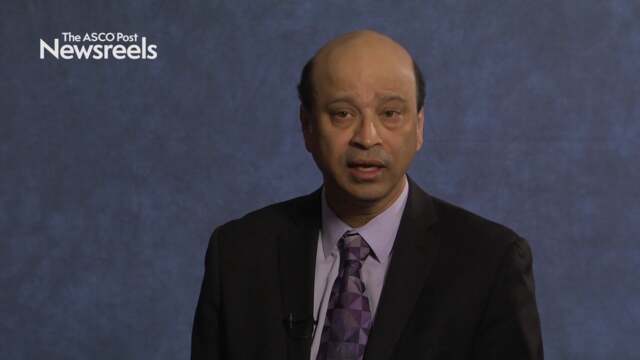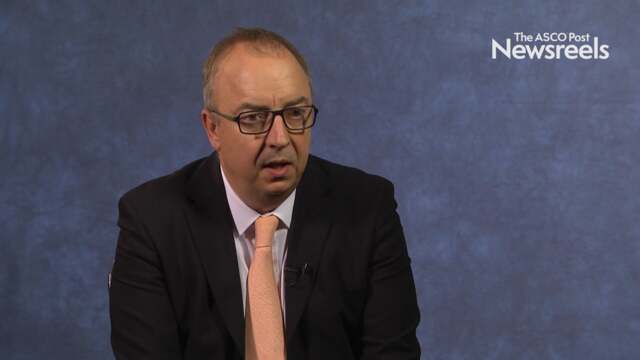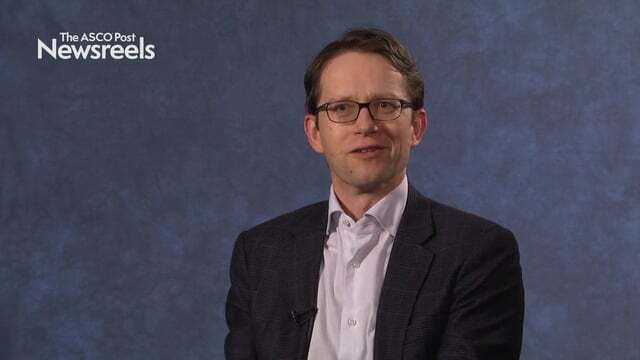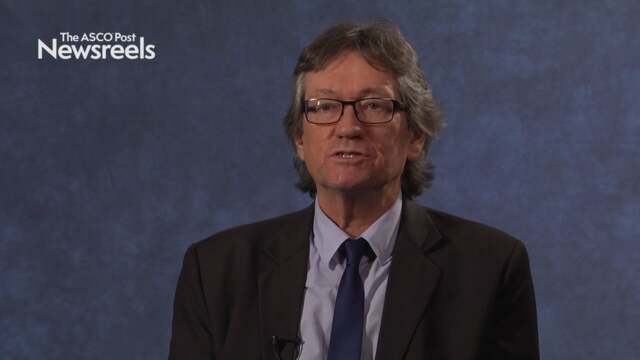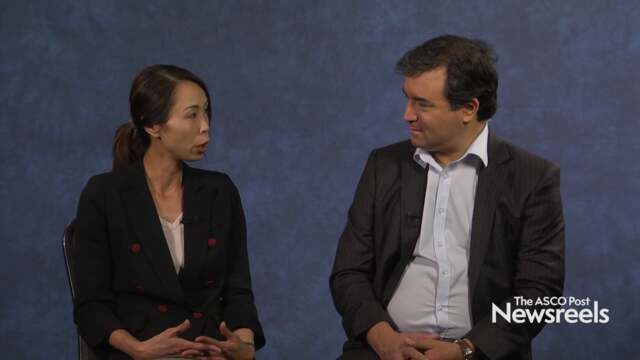Melinda Telli, MD, on Triple-Negative Breast Cancer: New Clinical Approaches
2017 San Antonio Breast Cancer Symposium
Melinda Telli, MD, of the Stanford University School of Medicine, discusses the current status of treatment for advanced TNBC, and new therapeutic strategies now being used for better outcomes.
Debu Tripathy, MD, of The University of Texas MD Anderson Cancer Center, discusses phase III study findings on first-line ribociclib vs placebo with goserelin and tamoxifen or a nonsteroidal aromatase inhibitor in premenopausal women with hormone receptor–positive, HER2-negative advanced breast cancer (Abstract GS2-05).
Michael Gnant, MD, of the Medical University of Vienna, discusses phase III study findings on giving an additional 2 vs an additional 5 years of anastrozole after the first 5 years of adjuvant endocrine therapy (Abstract GS3-01).
Nicholas C. Turner, MD, PhD, of The Royal Marsden Hospital NHS Trust, discusses the challenges of treating metastatic breast cancer and how liquid biopsies can serve as a guide to genetic phenotypes.
Richard G. Gray, MSc, of the University of Oxford, discusses an Early Breast Cancer Trialists’ Collaborative Group meta-analysis of 21,000 women in 16 randomized trials, which showed that increasing the dose density of adjuvant chemotherapy by shortening intervals between courses or sequentially administering treatment significantly reduces disease recurrence and breast cancer mortality (Abstract GS1-01).
Sherene Loi, MD, PhD, and Roberto Salgado, MD, PhD, both of the Peter MacCallum Cancer Centre, discuss study findings on pembrolizumab and trastuzumab in patients with trastuzumab-resistant disease (Abstract GS2-06).
